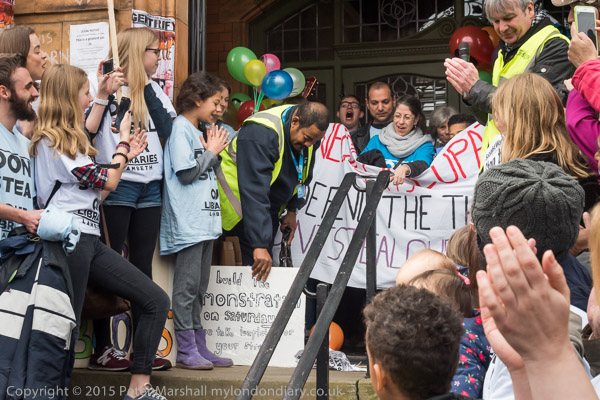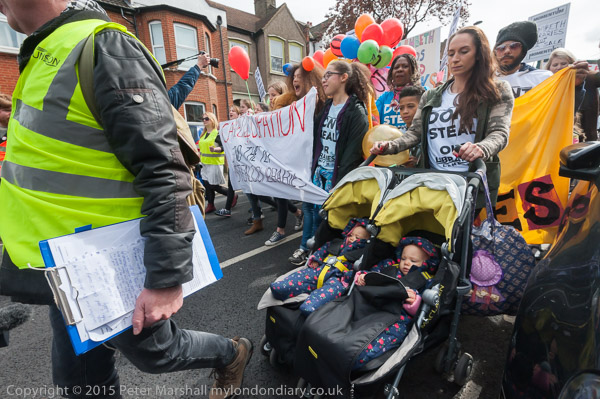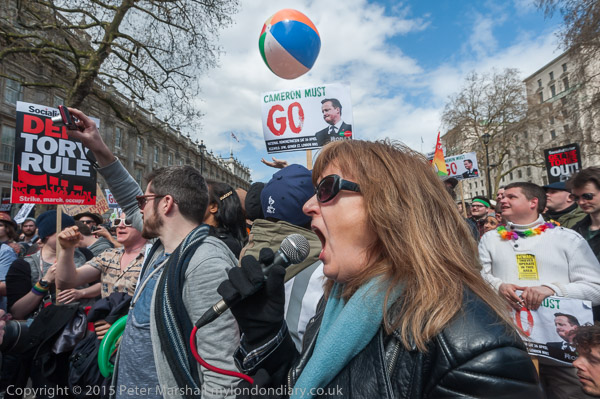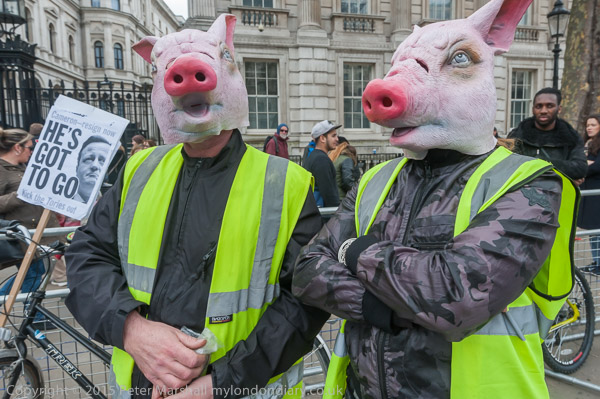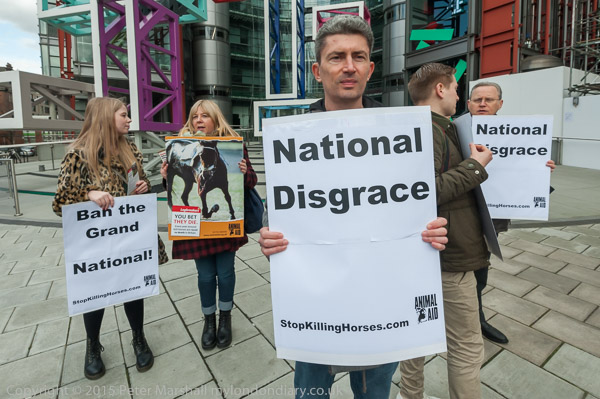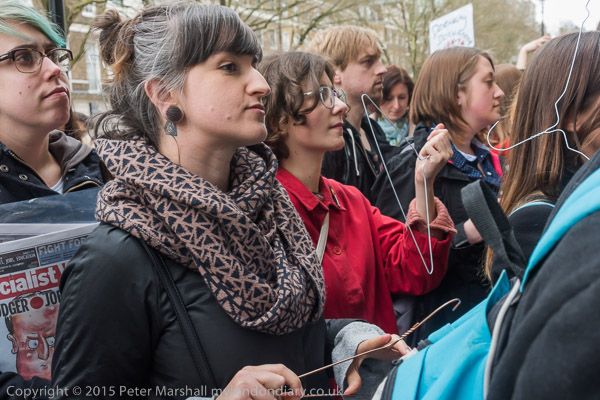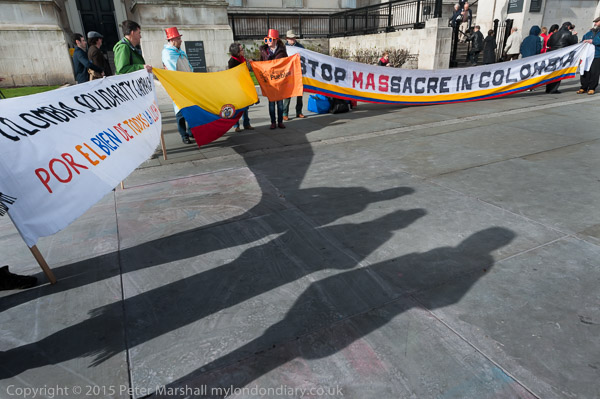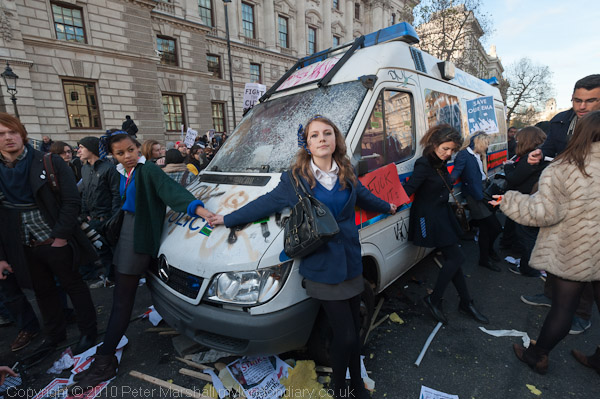
It was a Labour government under Tony Blair that first brought in fees for undergraduate and postgraduate certificate students at universities in September 1998. And it had been a Tory government under Harold Macmillan that had exempted UK resident students from tuition fees and given a right to means-tested maintenance grants back in 1962, though previously local authorities had also paid fees and grants for students from low income families. At the same time maintenance grants were replaced with repayable student loans for all but the poorest students.
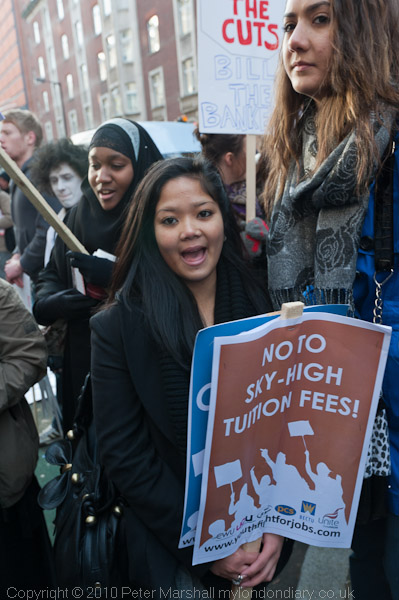
When they were brought in, the full fees were £1000 a year, but those with family incomes of less than £23,000 – roughly the average salary then – paid nothing, and only those with over £35,000 paid the full fees. £1000 in 1998 is equivalent to around £1800 now allowing for inflation. The Labour government put up the fees to £3000 in 2004, and set up the Browne review of Higher Education funding in 2009, which published its recommendations after they had lost power, but most of which were implemented by the Tory-Lib Dem coalition.
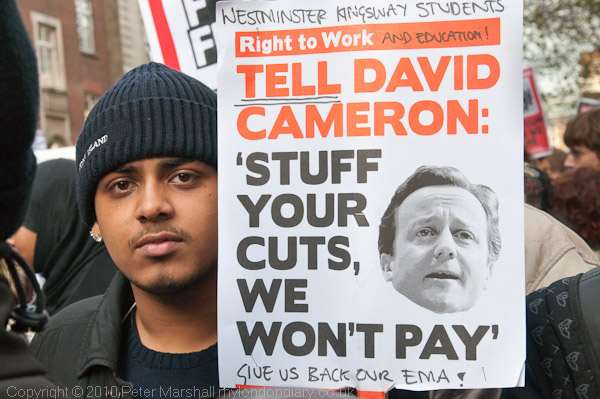
Browne had argued that there should be no cap on University fees, but the government decided on a cap of £9,000 and Browne also was responsible for recommending a system of student loans, although minor changes were made by the coalition government in its implementation. The Government’s spending review had also called for the Educational Maintenance Allowances (EMA), intoduced nationally under Labour in 2004 to be scrapped. This had given allowances to 16-18 year-olds in full time education from a household with an income of less than £30,810 with the full amount of £30 a week only for those whose household income is less than £20,817. It was these changes being introduced and other cuts in education which led to the student protests in 2010.
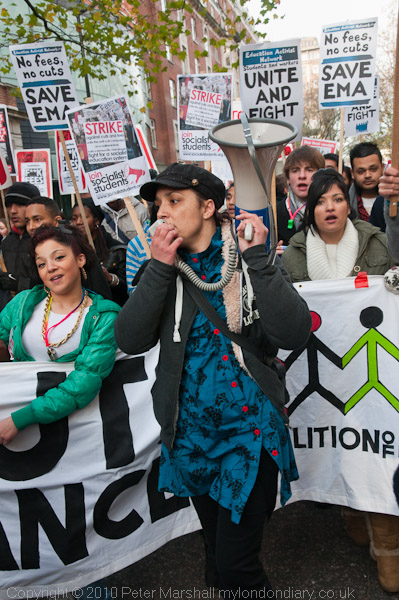
There have been further cuts since, as well as changes to make the student loan scheme less fair – and there are further changes planned which seem to make the loans considerably less generous. I was fortunate enough to have had all my undergraduate fees and a full maintenance grant paid by my local authority. My two sons also just scraped in before the 1998 changes at the time I was a teacher and the sole wage earner for the family and I think both got more or less a full maintenance grant.
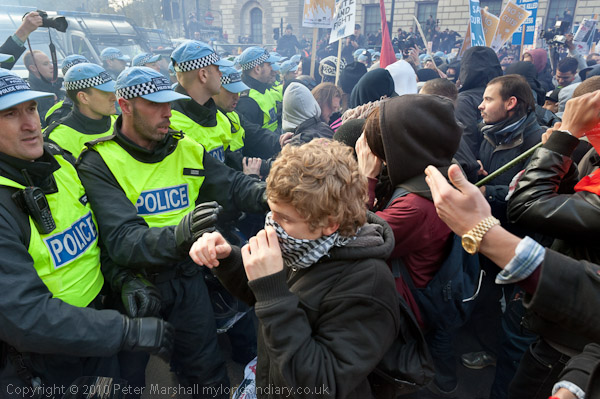
Many countries still manage to provide free higher education for their own nationals and in some cases for foreign students – including Scotland and most of Europe but also many other countries around the world, and it is a right recognised in a number of international conventions. Since the UK is the sixth richest country in the world, it seems rather surprising that our students have to pay, and pay increasingly. It’s hard not to see it as a deliberate attack by the wealthy on the poor.
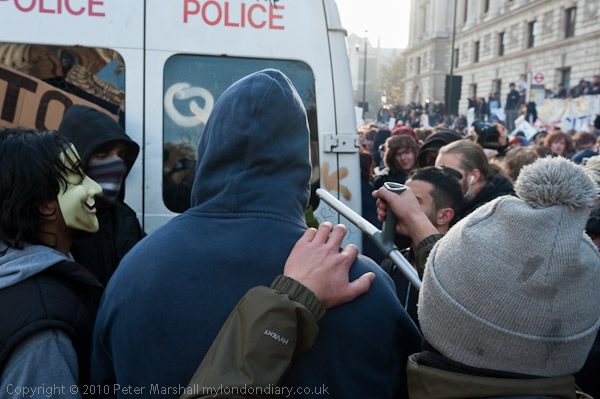
One of my most published pictures (at the top of this post) from the student protest on Wednesday 24th November shows a group of schoolgirls holding hands around a vandalised police van to protect it from further damage. Police who had harassed the march from the start and stopped it briefly several times had finally stopped it with a large force of police and a line of vans across the end of Parliament St, but, as I commented “had thoughtfully left an old police van as a plaything for the protesters outside the treasury. Perhaps because the tread on its tyres was so worn it would have been a traffic offence to move it – and it looked very unlikely to pass an MOT.” Press and protesters around it were told by march stewards that “it was obviously a plant” but this “didn’t stop a few masked guys attacking it (and I was threatened with having my camera smashed for photographing them doing so)”.
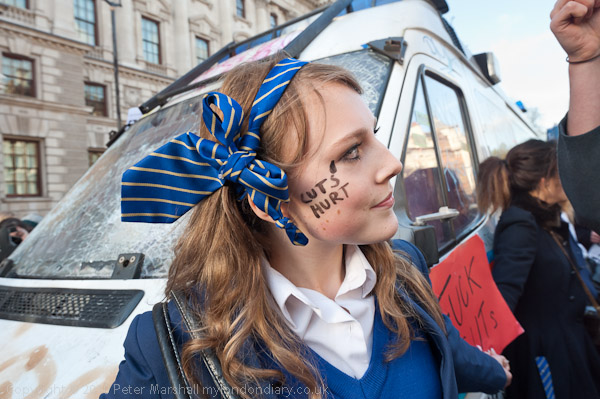
Many of the students were protesting for the first time, and although some protesters pushed through the police line, few of the others followed them. It was hard to understand the police actions at times.
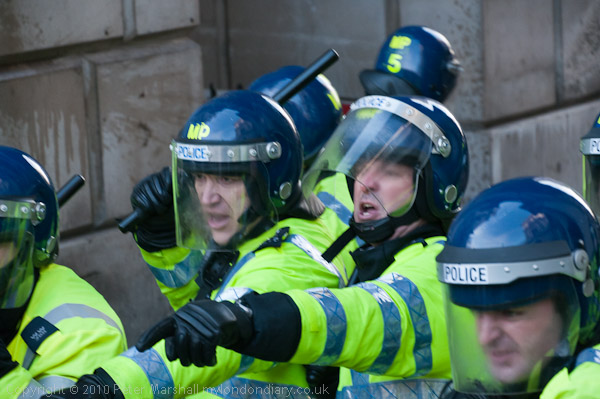
As I was about to leave, riot police decided to charge towards the people between the pavement barriers and the west side of Whitehall, again with what appeared to be some fairly indiscriminate batoning. I was threatened by police and forced to move away from the wall over which I had been leaning rather than be hit. They stopped their charge a few yards down the street.
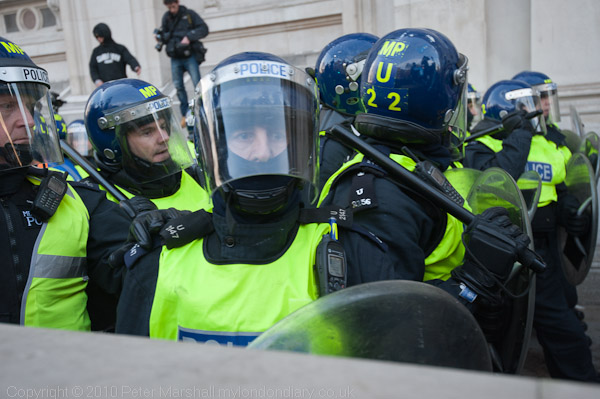
I commented:
It had been a pretty confused situation, and it seemed to me that neither police nor students came out of it with much credit. The police tactics seemed designed to create public disorder by kettling and a small minority of the students rose to the bait. Although most of the students were out for a peaceful march and rally and to exercise their democratic right to protest, the police seemed to have little interest in upholding that right.
More about the protest and more pictures on My London Diary Students Protest Fees & Cuts.
